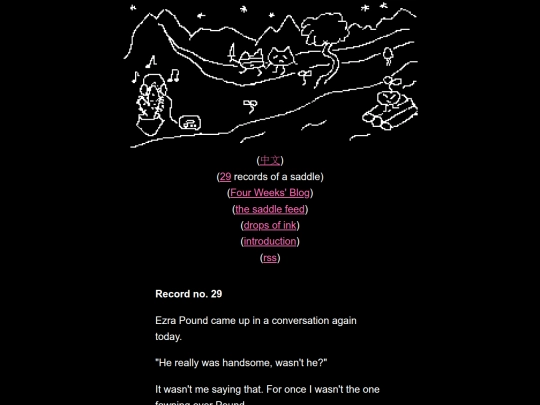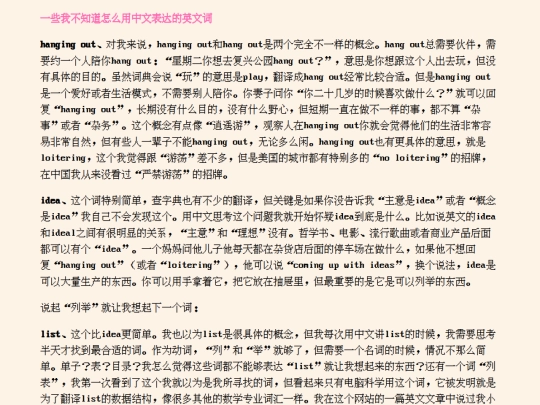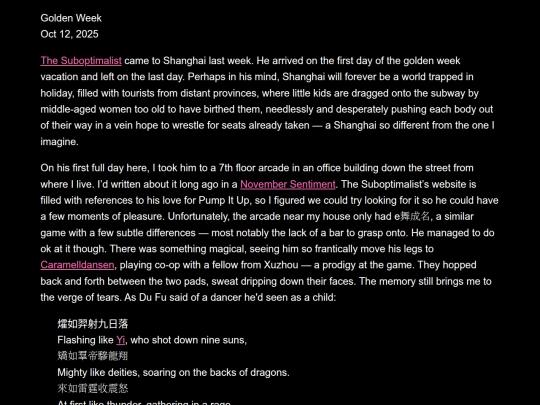12 likes
15 likes
 suboptimalism
4 months ago
suboptimalism
4 months ago
one of the arcade random encounters of all time... must restrain myself from correcting you about the train sign i bought
2 likes
1 like
 sorbier
4 months ago
sorbier
4 months ago
saddleblasters you're dropping so many collabs this week and each one is as crazy as the linkin park / jay-z crossover was in 2004
4 likes
 angelsaremathematical
4 months ago
angelsaremathematical
4 months ago
checked out your list of things you want to write about someday. I really hope you'll get to writing about xianyu because i shop a lot on it and I can feel how much comedic potential that topic has
1 like
read your DJs, noise and gong gong gong essay, it was very touching! The bottleneck metaphor for stagnation in art is a very good one. I should push myself to read one of your Chinese writings one day :)
3 likes
 saddleblasters
5 months ago
saddleblasters
5 months ago
thank you for reading! i realize in retrospect that the bottleneck that i was in when i wrote that was more like the long looping glass tubes of some laboratory experiment or complicated coffee-making apparatus, as it went on for years and years, going in countless circles.
1 like








































































































































































































This is why I like the social aspect of neocities. I click around on people's profiles and see who they're commenting on, who they're following. I've found some great sites that way! But I understand the frustration with people hopping on to make a trendy novelty site that's all flash and no substance.